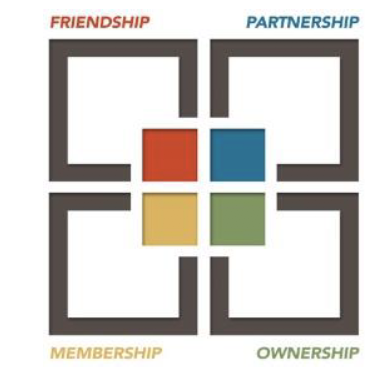My perspectives on race were formed at a very young age on athletic fields and in gyms. I remember being 10 years old playing youth football on a team called the Azzarelli Colts in Kankakee, IL. We had a drill we would do. Two guys stand side by side, and a running back tried to bust right through the middle of them with a running start. It was a test of will for the running back, and a test of teamwork for the two on defense. Well, there were two guys on that team that never let any man through during that drill. When Tyree Lewis and I stood side by side, there was no getting through us, no matter who tried. Tyree is black. I am white. I guess that was my first memory of judging a man on the content of his character, not the color of his skin….or at least, in my youthful mindset, his ability to tackle.

Press forward 10 more years. The moment I saw her, I was smitten. The guys on my college football team said to forget about it. “A hayseed like you will never get a girl like that! She’s the Captain of the Poms, President of her sorority. Besides, she only dates Kappa’s.” I took on that challenge. Although not a Kappa, like her father, I relentlessly pursued her until she fell for me. 3 years after graduating, I married my best friend. Sondra is black. I am white. I guess that was a moment I decided my life would never be about racism. Twenty-eight years and four bi-racial children later, we are still going strong.
Press forward 10 more years. Now thirty years old, I am called into service as a nonprofit program director in the community of Romeoville, IL. My ability to be a chameleon serves me well. I work to integrate people of different ages, economic status, and races together. Another integration of a church intentionally into the neighborhood further challenges my ability to adapt. The Romeoville community is also adapting to an influx of new residents. They double in size. Suddenly, diversity becomes the norm instead of a novel aspiration. I do a yearly review of our organization, and realize that our leadership on the board, as well as our leadership on the ground in the community does not reflect the now thriving diverse network we have in our neighborhood.
What do we do about it? We had been successful to date, but I knew that strong communities were always a reflection of the people that lived there. There was no easy answer. No quotas, diversity staff, or specially funded pilot programs were needed. My recommendation to the Board, and the Church, was to find and hire some people in the community that would help us reflect the diversity in leadership that we already showed in the community. My verbal encouragement to my Board of Directors in the moment was not as eloquent: “I am white, and my board is made is made up of 6 white guys from Naperville. Our church has no people of color on its paid staff. Find and hire some people of color.” So, challenge accepted. As the church began to wrestle with their challenge, the Institute For Community…my organization, looked to
use our developed technologies of building community to build a strong coalition of diverse leaders in our neighborhoods.

The IFC has two pieces of technology it uses extensively in neighborhoods. Our Wheel of Life provides a focus to maintain balance on our programming in the community, as well as ensure that many facets, or “spokes” of life are addressed. It allows people to come together over common interests and endeavors. It also provides some cover for spiritually based programs, as they are tossed in with things like recreation, family, and health & wellness pursuits. If left on its own, spiritual pursuits are typically exposed and sent to live alone in big empty buildings next to highways except for a once a week gathering. In our communities, the church is the people and the people are the church, so they integrate 24/7 into the wheel and can be found in every spoke.

We also have a square for a logo that also doubles as a technology to represent how people come together in neighborhoods. Friendship and Membership provide the experience of Belonging. Partnership and Ownership, the experience of Influence. In our model, we had plenty of diversity in the areas of Friendship and Membership. Our programs, as well as our residents in the communities we serve were diverse. Where we lacked diversity was in the areas of Partnership and Ownership. Because we did not have that diversity inside our organization, we focused on creating it through program partnerships that would encourage a wide range of people to bring diverse programs into our neighborhood. We also made a concentrated effort at the Board level, inviting diverse leadership at the highest levels to be the change we were seeking. The result was a group that had tremendous relationships, and resilience, as was displayed during the trials of 2020. The pandemic, as well as racial unrest, has tested our community. Our community has come through it together and is stronger for it. Amid the peak of unrest, with marches planned in communities across the country (one a mile from our building), and as the masses were quarantined to their homes, our Mayor reached out to our community to bring people together and make a public statement for our town. I could not have been prouder of our mayor, flanked by three pastors from three different churches that meet in our neighborhood, and one of our program leaders, as they spoke, led, and prayed for our community and the people there in our park at the rally. All was peaceful. People were heard. The community came together.
Two are white. Three are black.




